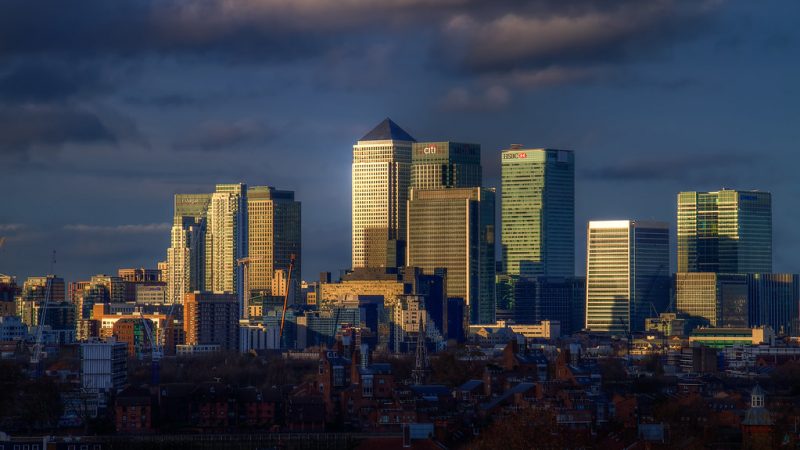'The state continues to douse fires, but there is no regulatory reform and no independent inquiry into the operations of the finance industry.'

Prem Sikka is an Emeritus Professor of Accounting at the University of Essex and the University of Sheffield and a Labour member of the House of Lords.
The UK government has introduced the Compensation (London Capital & Finance plc and Fraud Compensation Fund) Bill in parliament to provide compensation to thousands of savers who have lost money in yet another financial scandal. It is part of a familiar story of privatising profits, socialising losses, negligent regulators and ineffective auditors, leaving innocent parties to pick up the tab.
As usual, the state is left to clean up the mess left by the finance industry as a result of wholly deficient regulation.
The London Capital and Finance Story
The London capital and Finance (LCF) story began in 2012 when the small company began to entice people with promises of high returns. Soon, online chat rooms were saying that the promises were ‘dodgy’. In 2016, the Financial Conduct Authority (FCA) authorised the company for corporate business. Thereafter, LCF was regulated by the FCA, but it sold mini-bonds which were unregulated. The mini-bonds were misleadingly marketed as tax-free Individual Savings Accounts (ISAs) offering a return of 8% per annum.
Most of the LCF cash was invested in 12 companies, many with close connections to LCF’s founder. The transactions included loans to companies developing land in Cape Verde, a hotel in the Dominican Republic and a leisure park in Cornwall. LCF was in no position to finance such risky ventures.
It had only £50,000 of share capital and high leverage, which should have raised serious questions about its business model and ability to survive, but auditors PricewaterhouseCoopers had no problems with its 2016 accounts.
By 2017, LCF was technically insolvent, but on 14 February 2018 auditors Ernst & Young gave the accounts a clean bill of health. No further accounts were published.
The FCA saw no problems either. When contacted by worried investors about rumours of frauds and poor investments, it incorrectly told them that their investment was protected by the Financial Services Compensation Scheme (FSCS).
The bubble burst and in January 2019, LCF entered administration. At that point it had 11,625 investors who had invested £237m in mini-bonds. Many were senior citizens relying upon the investment for their pension. In March 2019, HMRC said that LCF ISAs did not comply with the regulations. So far, the administrators have sued 13 individuals for £178m, alleging fraud and that LCF cash was used to buy horses, a helicopter and membership of exclusive Mayfair clubs.
Seven people have been arrested and subsequently released by the Serious Fraud Office, though the inquiries are ongoing.
In December 2020, a report by Dame Elizabeth Gloster described the FCA’s supervision of LCF as ‘wholly deficient’ and said that there were ‘significant gaps and weaknesses’ in the FCA’s policies and practices. Its staff had ‘not been trained sufficiently to analyse a firm’s financial information to detect indicators of fraud or other serious irregularity’.
Following the Gloster report, in April 2021, the government set-up a compensation fund of around £120m for 8,800 investors, which will see them recoup 80% of their investment, capped at £68,000. Separately, the FSCS has paid out £57.6m to 2,800 bondholders on the basis that they received bad or misleading advice.
However, there remain significant issues with the latest Bill introduced in Parliament to provide compensation. Although the Bill enables HM Treasury to set up the compensation scheme, a number of issues remain.
Many investors face losses as the compensation is capped at £68,000. Therefore, many retirees will face financial insecurity. Secondly, the FSCS compensation is effectively paid out of levies made on better run investment businesses i.e. honest businesses bear the cost of the dishonest ones.
In addition, ordinary people will bear the cost of the £120m compensation. To operationalise the compensations scheme, HM Treasury will lend £120m to the Pension Protection Fund (PPF). So initially, the loan will effectively be from taxpayers. In time, the PPF will need to repay the loan. The PPF is funded by levies upon pension schemes. So, the net result is that the £120m will come out of solvent pension schemes and their members.
Furthermore, despite the admission of regulatory failure, the FCA executives have not faced any consequences. Indeed, its chief executive is now the governor of the Bank of England and to make matters worse, there is no clawback of remuneration from any of the LCF executives.
It is also worth pointing out that in June 2020, the Financial Reporting Council announced an investigation into the audits at LCF. If audits are found to be deficient, the most likely penalty will be a fine. Such fines will go to HM Treasury, and not to investors facing hardship caused by auditor silence.
The LCF administration has been a nice little earner for administrators, lawyers and sundry advisers, who have chalked up a bill of £25m. More is expected and will further deplete any funds which may have been available to unsecured creditors.
The LCF scandal is part of a long line of financial scandals. Despite the regularity of scandals, large parts of the finance industry, including private equity and hedge funds, remain unregulated.
The state continues to douse fires, but there is no regulatory reform and no independent inquiry into the operations of the finance industry. More scandals are inevitable.
Left Foot Forward doesn't have the backing of big business or billionaires. We rely on the kind and generous support of ordinary people like you.
You can support hard-hitting journalism that holds the right to account, provides a forum for debate among progressives, and covers the stories the rest of the media ignore. Donate today.



